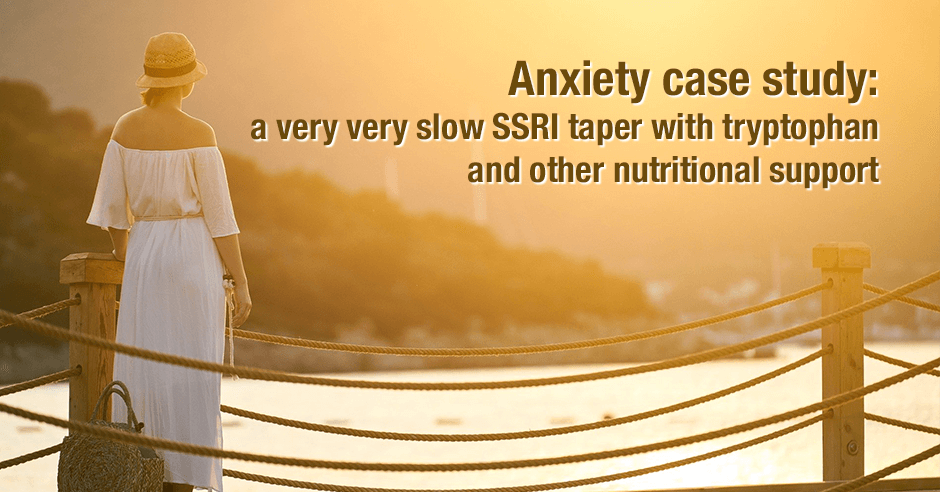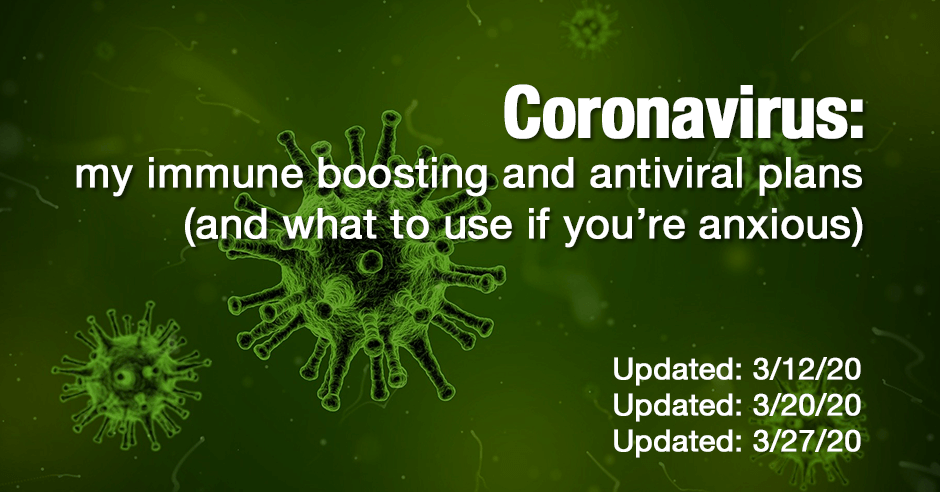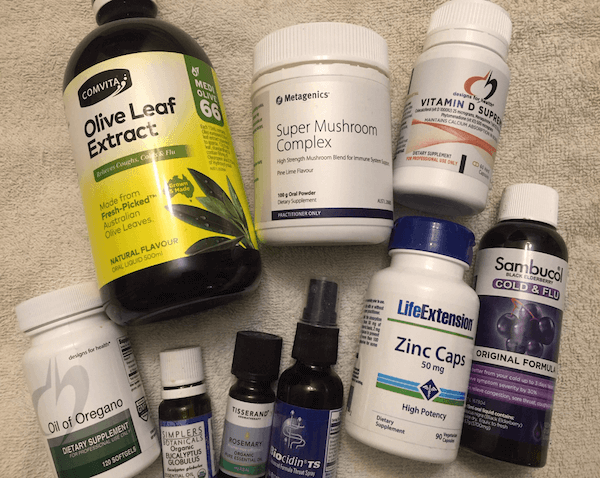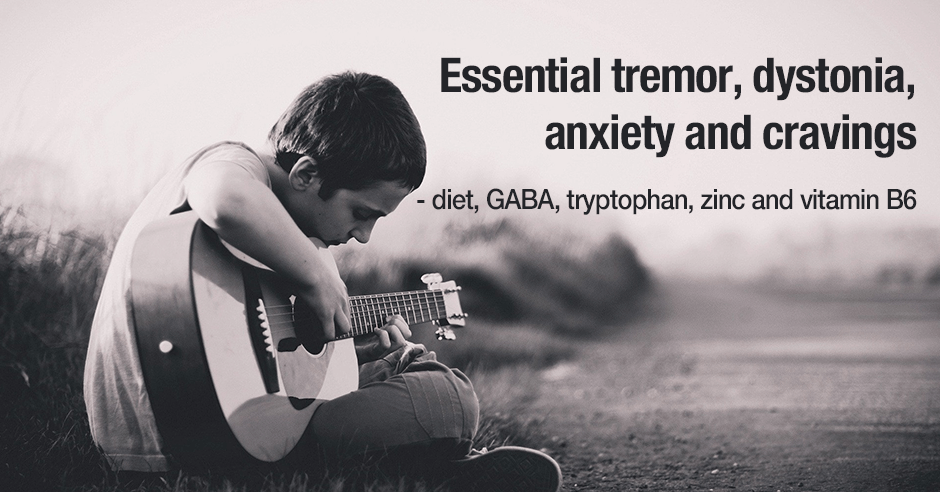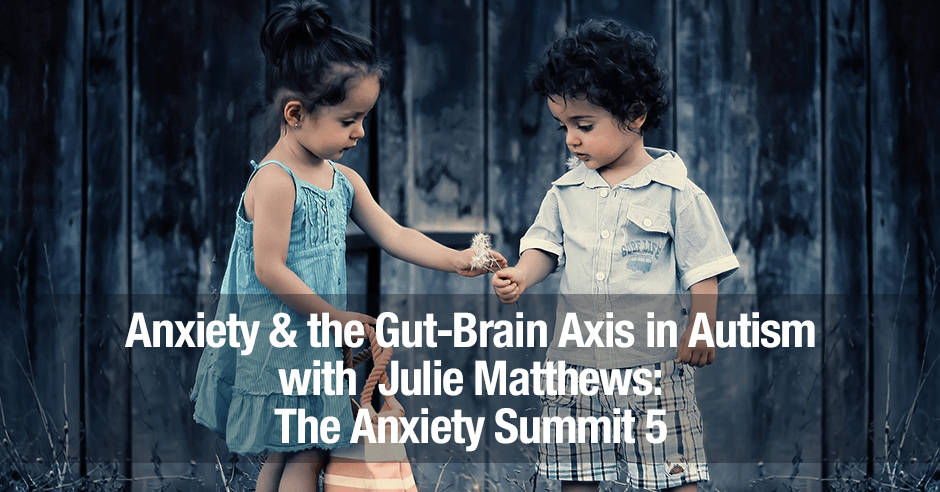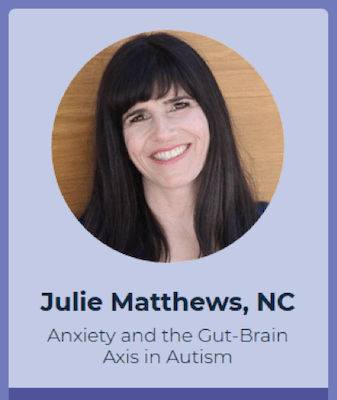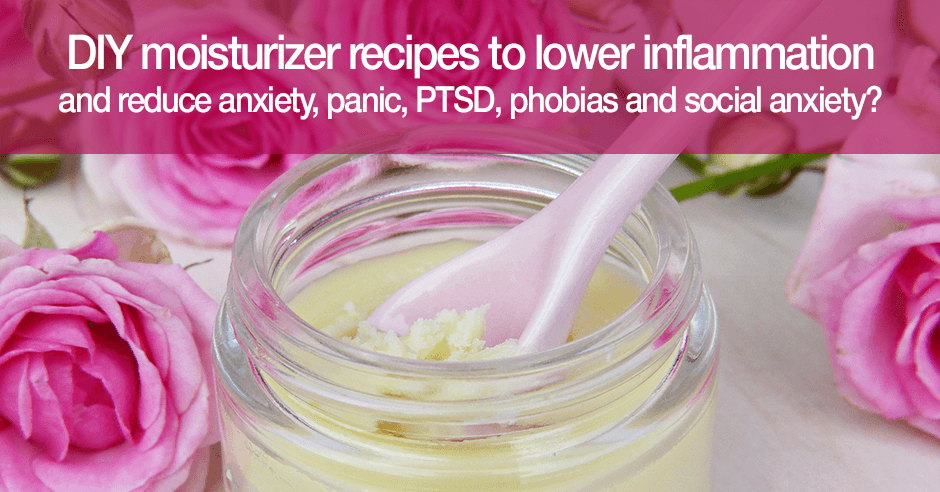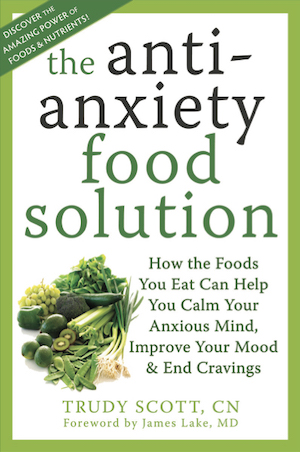
The Antianxiety Food Solution
– How the Foods You Eat Can Help You Calm Your Anxious Mind, Improve Your Mood and End Cravings
by Trudy Scott, CN (published by New Harbinger, 2011)
It’s remarkable how much the foods we eat can impact our brain chemistry and emotions. What and when we eat can make the difference between feeling anxious and staying calm and in control. But most of us don’t realize how much our diets influence our moods, thoughts, and feelings until we make a change. In this book, you’ll find four unique antianxiety diets designed to help you address nutritional deficiencies that may be at the root of your anxiety and enjoy the many foods that foster increased emotional balance.
This easy-to-use guide helps you choose the best plan for you and incorporates effective anxiety-busting foods and nutrients. You’ll soon be on the path to freeing yourself from anxiety—and enjoying an improved overall mood, better sleep, fewer cravings, and optimal health—the natural way!
In The Antianxiety Food Solution, you’ll discover:
- How to assess your diet for anxiety-causing and anxiety-calming foods and nutrients
- Foods and nutrients that balance your brain chemistry
- Which anxiety-triggering foods and drinks you may need to avoid
- Easy lifestyle changes that reduce anxiety and increase happiness
Buy your copy
Endorsements
Reviews from readers
I can “recommend it for practitioners who have patients/clients who want to improve their affect, increase energy levels (who doesn’t!), suffer from anxiety, poor memory or sleep issues. Pass on this book to them and ask them to read it through cover to cover. It’s got a wealth of tips and resources linking behaviour with nutrition, and does it gracefully and with much self-insight.
I’ve read many books on the subject of psychology and biochemical links, and this is definitely one of the best written. It’s aimed at the intelligent reader who may have a little knowledge of nutrition, as well as practitioners and those who use patient centred approaches within their practice.
<span class="su-quote-cite">Donald Scott, Osteopath & Naturopath, Natural Therapy Centre, Kilmacolm, Inverclyde, United Kingdom</span>I cried my way thru this book ~ out of JOY~ for finally finding a very helpful book! I have been on a journey for 10 years trying to navigate issues with depression, stress, anxiety, insomnia and other fun things. I’ve been to doctors, psychologists, psychiatrists and counselors. I’ve been put on medication which after many years of that left me suicidal, overweight, depressed and very angry. It is VERY frustrating trying to navigate doctors, testing and information out there that could help you. This summer I read several books that addressed depression from a dietary and nutrition standpoint. This one was the best in my opinion. It’s not too long, easy to read and understand, and well organized. And it agreed with several things I had read in other books ~ such as the use of amino acids, vitamins and issues with gluten and sugar to address depression, etc. There’s many good ‘life stories’ in it too which help you relate. Thanks Trudy Scott!
<span class="su-quote-cite">Kathy Masterson, Amazon review</span>Book reviews
- by Mira Dessy, Certified Nutrition Educator and holistic health columnist and featured in Nourishing Bytes, the ezine produced by the National Association of Nutrition Professionals, June 2011.
- by Dr Winston Chung, MD and Child Psychiatrist, and featured the SFGate blog City Brights.
Table of contents
Introduction
My Story
Anxiety Statistics and Facts
Causes of Anxiety
What Is a Natural Approach and Why Use It?
Overview of the Book
Chapter 1: Figure Out Your Optimum Antianxiety Diet
The Antianxiety Food Solution Diets
Antianxiety Food Solution Diet 1: Gluten Free
Antianxiety Food Solution Diet 2: Gluten Free and Dairy Free
Antianxiety Food Solution Diet 3: Grain Free and Dairy Free
Antianxiety Food Solution Diet 4: Traditional Foods
Foods to Include
Eat Real, Whole, Good-Quality Foods
Eat Frequently Enough
Eat Quality Animal Protein
Red Meat
Poultry and Eggs
Fish and Other Seafood
Eat Nonstarchy Fresh Vegetables
Eat Fresh Fruit
Eat Good Fats
Keep Hydrated
Eat Legumes
Eat Starchy Fresh Vegetables
Eat Gluten-Free Whole Grains
Consume Dairy
Eat Whole Grains That Contain Gluten
Foods to Avoid
Avoid Empty Foods
Other Foods You May Need to Avoid
Eat Bonus Foods
Recipe and Food Resources
Wrapping Up
Chapter 2: Avoid Sugar and Control Blood Sugar Swings
The Harmful Effects of Sugar and Sweeteners
Sugars and Sweeteners Defined
Where Sugar Is Found
Artificial Sweeteners
What to Use Instead of Unhealthy Sugars and Artificial Sweeteners
Control Blood Sugar Swings
Benefits of Controlling Blood Sugar Swings
Simple Dietary Changes to Help Control Blood Sugar Swings
Supplements
How Quickly You Can Expect Improvements
If You Have a Sugar or Carb Addiction and Can’t Quit
Chapter 3. Avoid Caffeine, Alcohol, and Nicotine
Coffee and Caffeine
Caffeine and Anxiety
Other Reasons to Consider Giving Up Caffeine
How to Quit Caffeine and What to Drink Instead
If You Do Want to Drink Coffee
Alcohol
Nutritional Deficiencies Due to Alcohol Consumption
Alcohol and Low Blood Sugar
Alcohol Sensitivity
How to Quit Alcohol
Nicotine
Nicotine and Anxiety
How to Quit Smoking
How Quickly You Can Expect Improvements
Chapter 4. Address Problems with Gluten and Other Foods
Why Food May Be Affecting Your Mood
True Food Allergies
Food Sensitivities or Delayed Food Reactions
Problems with Gluten
Gluten, Anxiety, and Other Mood Problems
Gluten and the Digestive System
Testing for Gluten Sensitivities
Two-Week Gluten Elimination-Challenge Trial
Lab Tests for Gluten Sensitivity
Salivary Antigliadin Antibodies
IgG Antibodies for Gluten-Containing Grains
Elevated Thyroid Antibodies
Testing for Celiac Disease
Alternatives to Grains That Contain Gluten
If Gluten Isn’t a Problem
Problems with Dairy Consumption
Problems with Other Foods
Problems with All Grains and Starchy Vegetables
Using Amino Acids to Reduce Cravings
Allergies and Anxiety Due to Low Blood Histamine
How Quickly You Can Expect Improvements
Chapter 5. Improve Your Digestion
The Digestive Process
Why Good Digestion and Absorption Are Important
Using Your Stool as a Clue to Your Digestive Function
Eating Guidelines for Good Digestion
Eat Foods That Promote Good Digestion and Skip Poor-Quality Food
Change Your Eating Habits
Causes of Poor Digestion and How to Improve Your Digestion
Low Levels of Stomach Acid or Pancreatic Enzymes
Testing for Low Stomach Acid and Pancreatic Enzymes
How to Correct Low Stomach Acid or Low Pancreatic Enzymes
Large Intestine Issues
Bacterial Imbalance or Parasites
Candida Overgrowth
Testing for Bacterial Imbalance, Parasites, and Candida
Controlling Candida and Increasing Beneficial Bacteria
Foods and Nutrients for Healing a Damaged Digestive System
Liver or Gallbladder Problems
How Quickly You Can Expect Improvements
Chapter 6. Balance Brain Chemistry with Amino Acids
GABA
Steps to Raise GABA Levels
Serotonin
Steps to Raise Serotonin Levels
Catecholamines
Steps to Raise Catecholamine Levels
Endorphins
Steps to Raise Endorphin Levels
Testing for Levels of Amino Acids
Drug of Choice
Guidelines for Supplementing with Amino Acids
Amino Acid Precautions
How Quickly You Can Expect Improvements
Chapter 7. Address Pyroluria or Low Levels of Zinc and Vitamin B6
Prevalence of Pyroluria and Co-occurring Disorders
Testing for Pyroluria
Pyroluria Urine Test
Zinc Taste Test
Vitamin B6 Testing
Fatty Acid Testing
Comprehensive Metabolic Profile
Zinc, Vitamin B6, and Fatty Acids for Pyroluria
Zinc Supplementation
Food Sources of Zinc
Vitamin B6 Supplementation
Food Sources of Vitamin B6
Fatty Acids for Pyroluria
Other Nutrients for Pyroluria
How Quickly You Can Expect Improvements
Chapter 8. Other Nutrients, Hormone Imbalances, Toxins, Medications, and Lifestyle Changes
Basic Supplements
Multivitamin and Multimineral with B Vitamins
Iron
Vitamin C
Individual Nutrients for Anxiety
Extra B Vitamins
Magnesium and Calcium
Vitamin D
Omega-3s and Omega-6s
Theanine and Lactium
Hormone Imbalances
Adrenal Dysfunction
Thyroid Dysfunction
Sex Hormone Imbalances in Women
Reduce Your Exposure to Toxins
Toxins in the Home
Heavy Metals
Understand the Effects of Medications
Make Important Lifestyle Changes
Do Some Exercise, Preferably Outdoors
Get Enough Sleep
Consider Therapy and Support Groups
Set Aside Time for Relaxation
Take Up Yoga, Tai Chi, Qigong, or Meditation
Take a Real Vacation Every Year
Try Guided Imagery
Other Techniques That May Help
Parting Words
Appendices
- Sue’s Story
- Food, Mood, Energy, Cravings, and Sleep Log
Resources
Internet Resources for Healthy Eating and Living
Lab Tests
Recommended Reading
Nutritional Healing
Food, Cooking, and Cookbooks
References
A selection of quotes and facts from each chapter
Here are a selection of quotes and facts from each chapter of the book:
Introduction
“There’s a reason why I’m so passionate about working with people with anxiety and why I’m writing this book. I’ve had my own personal journey with anxiety…”
Chapter 1: Figure Out Your Optimum Antianxiety Diet
There are 4 antianxiety diets but “Eating real, whole, good-quality food is the foundation of this book and any program to prevent and alleviate mental health issues such as anxiety….”
Chapter 2: Avoid Sugar and Control Blood Sugar Swings
“Sugar and alcohol may contribute to elevated levels of lactate in the blood, which can cause anxiety and panic attacks”
Chapter 3: Avoid Caffeine, Alcohol, and Nicotine
In a study, “…those with panic disorders experienced increases in symptoms such as nervousness, fear, nausea, heart palpitations, and tremors after consuming caffeine and said the effects were similar to how they felt during a panic attack…”
Chapter 4: Address Problems with Gluten and Other Foods
“Clinical experience and specific studies support the connection between gluten and anxiety, social phobia, depression, and even schizophrenia”
Chapter 5: Improve Your Digestion
“…people with digestive complaints such IBS, food allergies and sensitivities, small intestinal bacterial overgrowth and ulcerative colitis frequently suffer from anxiety and…depression.”
Chapter 6: Balance Brain Chemistry with Amino Acids
“GABA plays a major role in anxiety, and serotonin plays a role in at least some types of anxiety…. The great thing about supplementing with amino acids is that you’ll get immediate feedback: positive effects, adverse effects, or no changes at all.”
Chapter 7: Address Pyroluria or Low Levels of Zinc and Vitamin B6
“Low levels of zinc and vitamin B6 are frequently associated with a type of anxiety characterized by social anxiety, avoidance of crowds, a feeling of inner tension, and bouts of depression”
Chapter 8: Other Nutrients, Hormone Imbalances, Toxins, Medications, & Lifestyle Changes
“Mild to moderate deficiency of vitamin C may be associated with increased nervousness and anxiety… Supplemental magnesium together with vitamin B6 was shown to alleviate anxiety-related premenstrual symptoms, as well as breast tenderness and menstrual weight gain…”
As you can see, there are many factors that can affect how anxious you feel and since we are all biochemically unique it’s important to figure out and address what may be triggering your anxiety, mood issues and associated cravings.
Once you’ve read your copy (or listened to the audio version) I would love to hear back from you on how my book has helped you and/or family members – either here in the comments below or via an Amazon review or a review on another platform.
Feel free to post your questions too.
